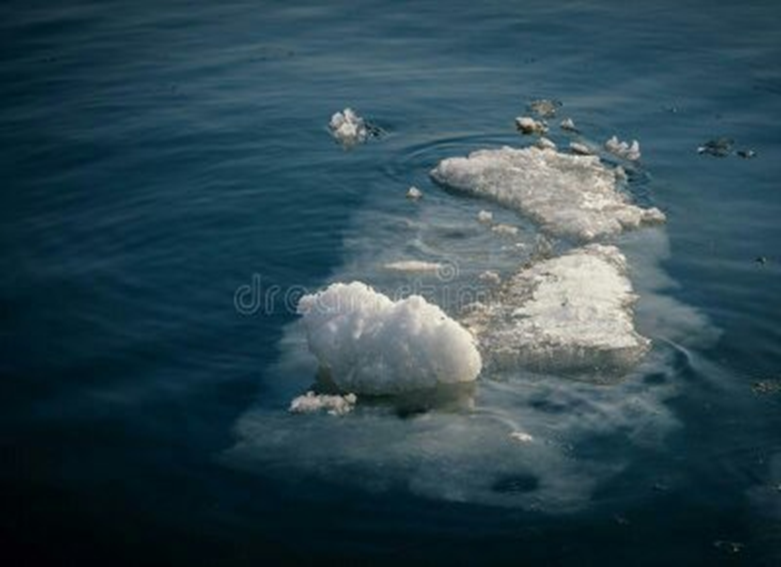Why does ice float on the surface of water despite its heavy weight? Here's the secret

Ice is a heavy substance, but it is actually less dense than liquid water, which is why it floats on the surface of water.
According to Live Scinse, May Neiman, a professor of chemistry at the University of Oregon, said that this is an anomaly in nature. “Normally, substances are denser when they are solid, but water is the only substance that is less dense than when it is solid.”

This is due to the structure of water molecules. When water freezes, hydrogen bonds form between water molecules. These bonds push the molecules away from each other, creating a more spacious structure.
As a result, the volume of the ice mass is less than that of liquid water.
This means that ice is less dense than liquid water, and therefore floats on water.
This anomaly in water density is of great importance to life on Earth, as it helps protect marine life from freezing in the winter. It also insulates the Earth from heat, which helps maintain the planet's temperature.

Anomaly effects
The effects of water density anomalies are wide-ranging. Some of these impacts include:
Protecting marine life: Low ice density allows marine life to survive the winter. When surface water freezes, it creates a protective cover that protects organisms underneath from freezing.
Thermal insulation: Water helps insulate the ground from heat. Ocean water is denser at cooler temperatures, which helps keep the Earth cool in the summer.

- Shaping the landscape: Ice helps shape the landscape. When the ice melts, it leaves behind valleys, lakes and rivers.
Source : websites

